Share
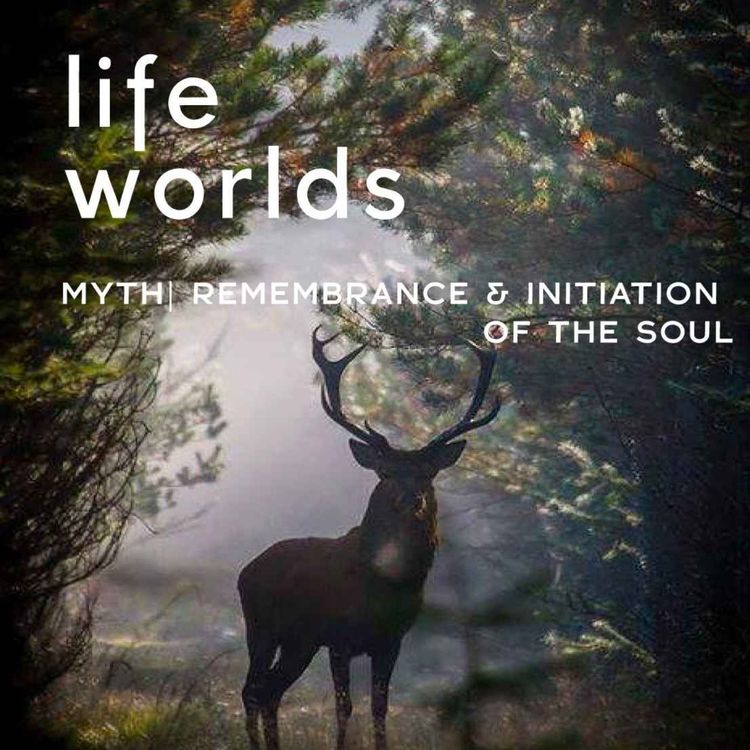
Lifeworlds
Myth | Remembrance & Initiation of the Soul
An essential part of living into different lifeworlds resides in the mythic realm – the currents of poetry, mysticism and story that stream in the archetypal world below the world. Today I bring you a myth, from Darren Silver, rite of passage and vision quest guide; it is a myth that has laid dormant for many years and is finally here to be told.
On the surface it’s a story of twins, of a brother and a sister, and of their initiation. There is magical surrealism here, and mythic beings, ancient and enduring laws of reciprocity, of the ways of the forest, of how to barter in ancient exchanges of the soul. There are riddles and agreements and creatures that speak and weave wisdom through grit and pain and love.
The enduring message that this myth leaves me with is that initiation does not come bundled in cozy sound baths and sipping cacao on a beach — initiation is painful and tears us to our bones, and yet it is a sublime liberation, because through initiation, we manifest our gifts into the world. And as Darren says, for our gift to manifest, we have to wager our own skin.
So sit back and listen to this one closely. Be present, receptive, and dignify the messages that are coming through as medicine for you, because something will strike you close. Allow yourself to be carried away by the myth. And so we begin.
Credit: Photo of Stag (Flickr)
More episodes
View all episodes
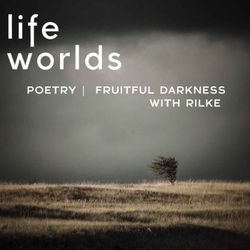
Poetry | Fruitful Darkness with Rilke
17:42||Season 3, Ep. 0This Lifeworlds episode is a devotional journey into the work of Rainer Maria Rilke, the lyrical German poet of thresholds and embracing transformations.Through readings of his most luminous poems and writings, we explore how Rilke guides us deliciously in reconciling suffering and turmoil with tremendous beauty. It’s an offering for anyone standing in the in-between, for those moving through sublimation, and longing for those secret, dazzling encounters with primal life forces. Rilke’s words are an invitation in. To move towards. His poems are prayers…. “to go out into our hearts as onto a vast plain, so that life can feel us as it reaches for us.”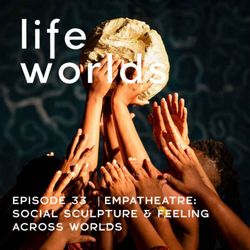
33. 33. Empatheatre: Social Sculpture & Feeling Across Worlds
01:17:20||Season 3, Ep. 33In this episode, we explore the role of theatre and empathy in transforming worldviews. Dr. Dylan McGarry is one of the founders of Empatheatre, a South African theatre-making company and methodology that turns research and storytelling into living social sculpture. Their plays create what they call amphitheatres for empathy - spaces where art, ritual, and dialogue help people listen across difference, from mining conflicts to ocean governance to human-wildlife coexistence.Empatheatre’s productions have brought together communities, policymakers, and activists that rarely meet, showing how imagination can transform civic life. The process of creating the plays generates profound potentials for restorative justice. As Dylan says, empathy is not about agreement, but about creating a vessel strong enough to hold our differences while keeping us in relation.We will cover:Empathy as a creative actTheatre and storytelling as Trojan horses that open conversations that traditional politics often can’tHow to design spaces that allow lifeworlds to touch and the practices that help us shift into another’s perspectiveHow empathy, when practiced collectively, becomes a form of governance: a new infrastructure for democracy and careEpisode websiteLinks:Share your input for the whale productionEmpatheatreDylan’s PHD5min Empatheatre docIndlela Yokuphila: The Soul's Journey (ZULU) film & the radio play used in the court caseLalela Ulwandle TrailerUmkhosi Wenala doc about Zulu musical on indigenous traditions & animist relationshipsSteiner’s 12 sensesMOTHProject CETIKaren BakkerUndrowned: Black Feminist Lessons from Marine MammalsOne Ocean Hubdylanmcgarry.orgInstagram: @dylan_mcgarryPhoto Credit: Casey Pratt. It captures a significant moment in a collaborative theatre-making & storytelling project titled "Umkhosi Wenala"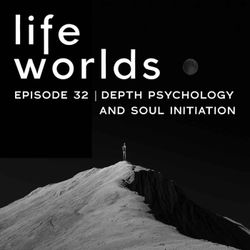
32. 32. Depth Psychology and Soul Initiation – with Bill Plotkin from Animas Valley Institute
01:14:45||Season 3, Ep. 32In this episode, I sit down with Bill Plotkin, founder of Animas Valley Institute. Over the past 40 years, Bill has developed intricate, nature-based models of human development and education that challenge dominant psychological frameworks and invite us into a maturation process rooted in wholeness, wildness, and the more-than-human world.We explore their three major maps of a person’s “soul-centric journey” and cover topics including:Why most modern humans remain developmentally stuck in early adolescenceThe 8-stage Soulcentric Developmental Wheel and how it mirrors nature’s rhythmsThe four cardinal facets of the psyche, and the inner protectors that distort themWhether other species undergo their own versions of soul initiationWhy the path to a mature culture will not come from the strategic mind, but from descent, mystery, and imaginationThis is a deep-dive into a body of work that’s revolutionizing the lives of thousands of people, and how to think about adulthood, education, and healthy human cultures.Episode Website LinkLinks:Animas Valley InstituteAnimas Valley OfferingsSoulcraft: Crossing into the Mysteries of Nature and PsycheNature and the Human Soul: Cultivating Wholeness and Community in a Fragmented WorldWild Mind: A Field Guide to the Human PsycheThe Journey of Soul Initiation: A Field Guide for Visionaries, Evolutionaries, and RevolutionariesParable of the TribesLook out for meditations, poems, readings, and other snippets of inspiration in between episodes.Music: Electric Ethnicity by Igor Dvorkin, Duncan Pittock & Ellie KiddPhoto Credit: Midjourney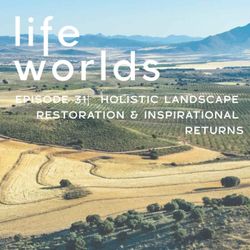
31. 31. Holistic Landscape Restoration and Inspirational Returns – with Willem Ferwerda from Commonland
01:08:40||Season 3, Ep. 31Almost 40% of Earth’s land is degraded, meaning that the natural cycles that sustain biodiversity, water, food, and livelihoods are breaking down. This degradation is an ecological crisis, and, it also lies at the root of massive social breakdown, displacement, and conflict. And it’s accelerating.In this episode, I speak with Dutch ecologist and entrepreneur Willem Ferwerda, founder of Commonland, one of the leading global initiatives tackling land degradation via large-scale holistic landscape restoration. Their work spans over 20 countries, with projects restoring millions of hectares from South Africa to Spain, Australia to the Netherlands. We get into their unique 4 Returns Framework - a powerful, intuitive model that integrates ecological, social, financial, and inspirational/spiritual returns.We talk about:Communities building long-term visions together across sectorsThe importance of meeting different audiences where they areThe role of storytelling, spirituality, and local leadershipHow restoring land helps restore meaning and purposeAnd how, ultimately, all this work is about regenerating lifeEpisode Website LinkShow links:The 4 Returns Framework in Practice4 Returns Framework Publication4 Returns Framework for Landscape Restoration4 Returns Diagnostic ToolThe Meaning of Laudato Si for a Landscape EthicTowards financing large-scale holistic landscape restoration in EuropeThe Trillion-Dollar Promise Of A Landscape Restoration Industry, ForbesWe must tackle global risks in an integrated way – here’s howHow the Ecosystem Approach supports “Cooperation in a Fragmented World"Albania landscape projectLook out for meditations, poems and readings in between episodes.Music: Electric Ethnicity by Igor Dvorkin, Duncan Pittock & Ellie KiddPhoto Credit: Commonland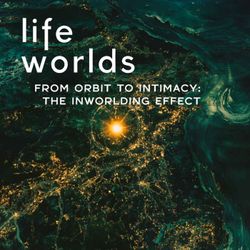
From Orbit to Intimacy | Beyond the Overview Effect
16:24||Season 0, Ep. 0What if the next shift in planetary consciousness didn’t come from looking back at Earth from space, but from listening deeply to the voices already here? In this thought piece I propose the “inworlding effect” as the overview effect of our time: one where developments in science, technology, law, and many other disciplines are revealing our entangled presence within a multispecies world.Medium Article LinkEpisode Website Link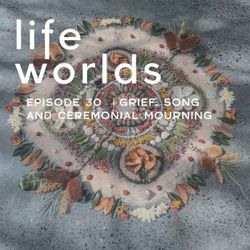
30. 30. Grief, Song and Ceremonies of Mourning - with Alexandra “ahlay” Blakey
01:05:29||Season 3, Ep. 30Today we’re joined by artist, musician and communal grief ritual facilitator Alexandra “ahlay” Blakey to speak about the cultural forgetting of communal mourning, the sacred role of professional mourners, and the re-emergence of grief ceremonies as necessary spaces of remembrance, healing and repair.Ahlay brings her experience weaving song, body, and ritual into collective spaces where grief is given breath and movement, and we explore the history of grief practices across cultures, the political power of public mourning, and how grief can soften the heart and stitch community back together. We explore what to expect in a communal grief ceremony, and ahlay shares the story behind her 200-voice album WAILS: Songs for Grief, inspired by whales, ancestral sorrow, and Francis Weller’s work. Within the episode are woven tracks of her haunting songs, so tune up your headphones, and sink in.Episode Website LinkShow Links:Healing at the Roots: ahlay’s websiteSong: Carry this AllThe Sacred Role of Eastern European Professional MournersSobonfu SomeWAILS: Songs For GriefOne Body Song Circle LiveFrancis WellerBook: Dangerous VoicesBook: Caliban and the WitchMartin PrechtelMyth of Lindworm: Martin ShawBandcampYoutube ChannelSpotifySoundcloudInstagramLook out for meditations, poems, readings, and other snippets of inspiration in between episodes.Music: Electric Ethnicity by Igor Dvorkin, Duncan Pittock & Ellie KiddPhoto Credit: Cover image (Earth Altering)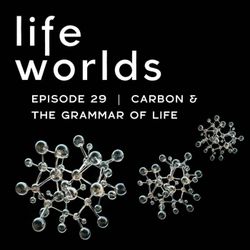
29. 29. Carbon and the Grammar of Life - with Paul Hawken
01:03:25||Season 3, Ep. 29In this episode we’re joined by the renowned environmentalist, activist and author Paul Hawken to explore the lifeworld of carbon and its role as a vital agent in the story of life.Paul speaks about the dysfunctions in Western language on how we speak about climate and nature, and why metaphors of war, control, and fixing actually perpetuate the very mindset that created the crises in the first place. We explore common traps we fall into, and how to recarbonize, to bring life back and restore relationality in how we think, feel, and act.This is a wide-ranging and intimate conversation on language, grief, science, reverence, and what it means to come home to Earth and to the deeper meanings of life.Episode Website LinkShow Links:Carbon, the Book of life (Paul’s book)Drawdown (Website & Paul’s book)Regeneration (website resources with projects)Regeneration (Paul’s book)Francis Weller Course on griefClosing Poem: Love in a Time of Climate Change By Craig Santos PerezLook out for meditations, poems, readings, and other snippets of inspiration in between episodes.Music: Electric Ethnicity by Igor Dvorkin, Duncan Pittock & Ellie Kidd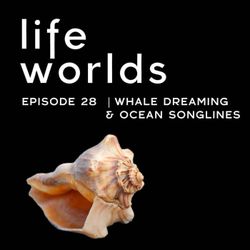
28. 28. Whale Dreaming & Ocean Songlines - with WHAIA
01:19:08||Season 3, Ep. 28In this episode, we journey into the vibrational worlds of sound, ancestry, and deep listening with Whaia, a Ngāti Kahungunu woman of Māori descent and First Nations sonic weaver and multi-instrumentalist.Raised between the salt of the Pacific and the red dust of the Australian desert, Whaia’s voice carries ancient songlines, blending traditional Māori instruments, crystalline singing bowls, and her original mother tongue, the language of Te Rā, the Sun. We explore her work singing with whales, reclaiming cultural instruments once left silent in museums, and remembering the sacred oceanic highways navigated by her Polynesian ancestors, guided by the stars and whale ancestors.This is a conversation about song as medicine, the voice as ceremony, and reclaiming lineage through sound. We ask: what might the whales be singing to us now? What frequencies are we called to remember in order to heal ourselves and our waters?Stay on after the episode wraps to hear a special feature from Whaia’s debut album WHAIA & WATER — the first of a twelve-part series known as her Sacred Sonic Sessions.Episode Website LinkShow Links:Whaia websiteInstagramWhaia Water Album DownloadWisdom Keepers DelegationOceanic GlobalAustralian SonglinesThe PleiadesMasaru Emoto: Messages in WaterLook out for meditations, poems, readings, and other snippets of inspiration in between episodes.Music: Electric Ethnicity by Igor Dvorkin, Duncan Pittock & Ellie KiddPhoto of Whaia: Chanel Baran Photo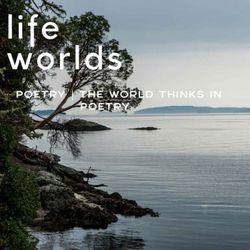
Poetry | The World Thinks in Poetry
07:05||Season 3, Ep. 0In a remote cabin in Vancouver Island in 2019, far away, I sat by the shore. I listened. I re-read poetry. I swam with jellyfish. I ate bright salmon berries and raw samphire. I gazed around and listened to the songs of the land. This piece of writing is a result of my days there. Full poem on Lifeworlds Website